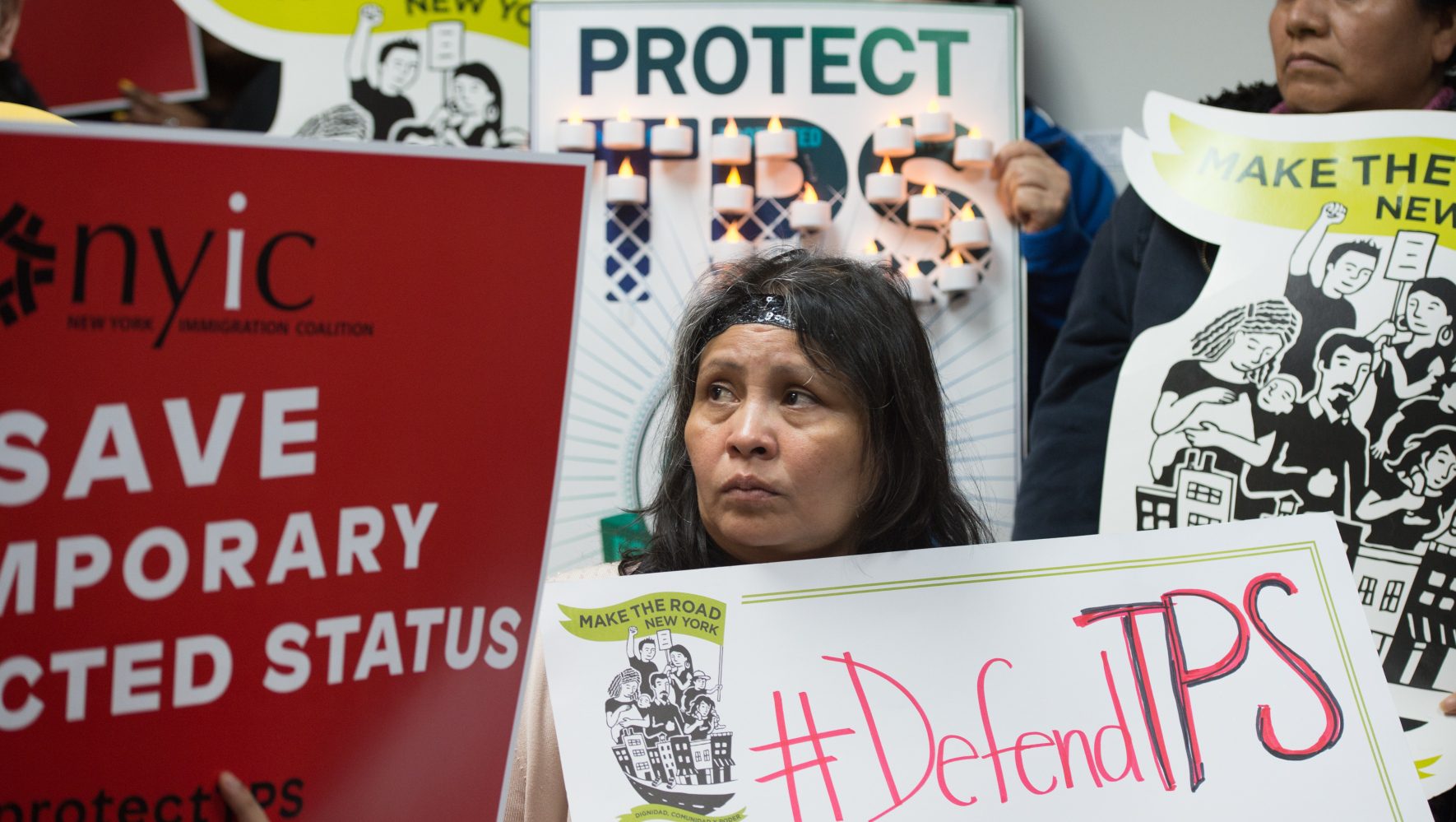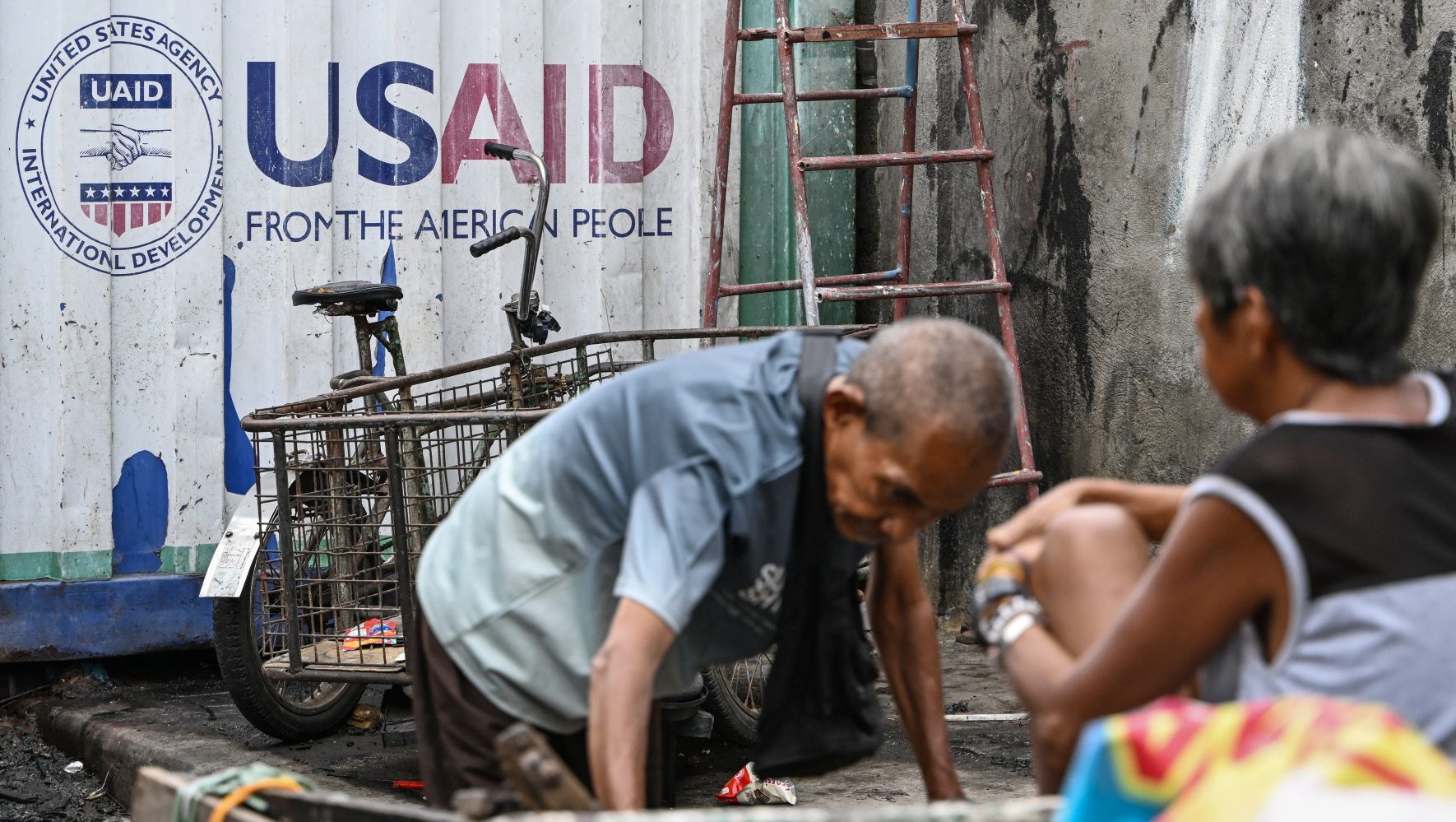
Temporary Protected Status (TPS) is a vital humanitarian program in the United States designed to offer temporary legal status to individuals from countries experiencing severe crises. Administered by the Department of Homeland Security’s (DHS) United States Citizenship and Immigration Services (USCIS), the program provides a lifeline to those who cannot safely return to their home countries due to ongoing armed conflict, environmental disasters, or other extraordinary and temporary conditions. As of March 2024, there were more than 850,000 people from 17 designated countries in the United States protected under TPS. The majority of TPS holders are from Haiti, El Salvador, and Venezuela.
The future of TPS is in jeopardy. On February 1, the second Trump administration terminated TPS for close to 350,000 Venezuelan nationals. Overnight, the policy change placed these individuals at risk of deportation within a matter of months. It is possible that DHS will revoke or allow additional country designations to expire which would negatively impact the lives of hundreds of thousands of law-abiding individuals in the country.
In the latest edition of HIAS’ Deep Dive series, we explore the key aspects of Temporary Protected Status (TPS), explain its benefits to the United States, and examine how the second Trump administration may change it.
What is TPS? Who is eligible for it?
Created in 1990, TPS is a temporary immigration status granted to eligible nationals of designated countries. The program aims to protect individuals from deportation and allows them to live and work legally in the United States while their home countries recover from crises. DHS reviews TPS status for countries every six to 18 months.
The countries designated for TPS are typically enduring a crisis such as ongoing armed conflict, a natural disaster (like an earthquake or a hurricane), or another temporary condition that would prevent a citizen from returning to safety. To be eligible, a national of a designated country must have been continuously present in the United States since the effective date of the TPS designation. The program does not provide a pathway to permanent residency or citizenship in the United States. TPS recipients in the United States have lawful status and are not “illegal” immigrants.
How does TPS benefit the United States?
TPS provides nationals from countries afflicted with a severe, temporary crisis — think Haiti’s devastating 2010 earthquake — with protection from deportation as well as permission to work in the United States, allowing recipients to contribute productively to the U.S. economy. TPS holders fill essential roles in industries such as healthcare, construction, hospitality, and agriculture. Long-term TPS holders are considerably more likely than the overall population to be part of the work force; for example: 86% of TPS holders from El Salvador and 83% from Honduras, who have been in the U.S. for more than 20 years, hold jobs.
Long-term TPS holders are considerably more likely than the overall population to be part of the work force.
In 2021, TPS holders paid $2.2 billion dollars in taxes, including almost $1 billion to state and local governments. These contributions support public services and infrastructure. Notably, TPS holders are not eligible for the majority of federally funded benefits.
Many TPS holders are also deeply integrated into their communities where they have lived and participated in local organizations, schools, and civic activities. Their involvement enriches local culture, strengthens community ties, and contributes to the United States’ status as a global economic and cultural force.
Why does the Trump administration want to revoke TPS — and what’s the risk if it succeeds?
Both the Trump presidential campaign and Project 2025 openly advocated for the termination of TPS. Prior to the 2024 election, President Trump and Vice President-elect JD Vance amplified false rumors about Haitian migrants in Springfield, Ohio. The majority of Springfield’s Haitians, whose lives were upended by the insidious lies, were not, contrary to Vance’s characterization, “illegal aliens.” They have lawful status in the United States under TPS.

Refugee Rights and the Trump Administration: Week Three
Read MoreThe pretext for these rumors and harmful policies to terminate TPS is the false narrative that immigrants are criminals who are a threat to national security, public safety, and a financial burden to U.S. taxpayers. This is simply not true. The research shows that recipients of TPS contribute immensely to the U.S. economy and increased immigration is associated with no effect on or lower rates of violent and property crimes. In fact, providing lawful status to individuals could facilitate and encourage more cooperation and trust with law enforcement in the investigation and prosecution of crimes.
President Trump’s open hostility to TPS is not unprecedented. During his first term, his administration tried to revoke TPS designation for Haiti, Sudan, Nicaragua, and El Salvador. In 2018, these efforts were blocked by a judge who found that termination of TPS would place beneficiaries at risk of “being uprooted from their homes, jobs, careers, and communities.”
Without these protections, individuals in our communities will confront an alarming reality of insecurity, uncertainty and fear. The termination of TPS will harm thousands and undermine our moral and legal commitments to protect individuals who are fleeing violence, persecution, and instability in their countries. Moreover, the preservation of TPS is important to the economic well-being and social cohesion of the United States. For these reasons, the administration’s efforts to end TPS are wrong, and alarming.


